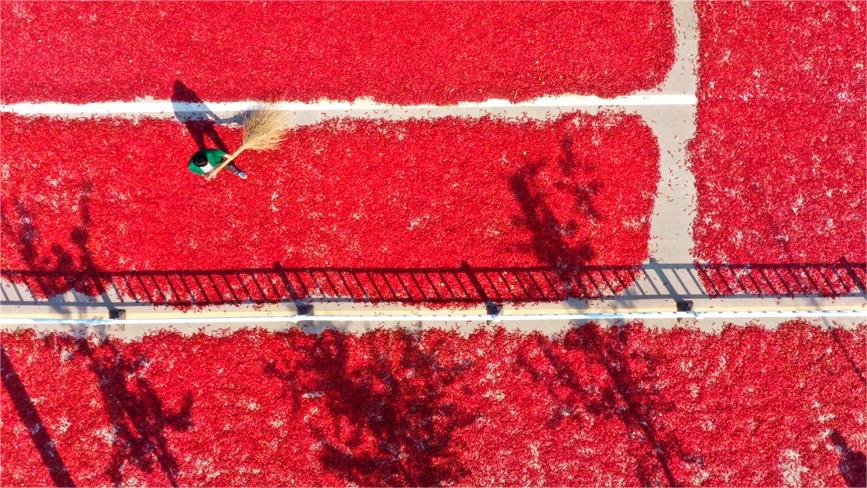Out of mountains, herders embrace promising future
URUMQI, Nov. 1 (Xinhua) -- In late autumn, Kuwat Sairye and his family reunited again after being apart for several months. Since leaving the Kunlun Mountains, every instance of parting and reunion has been marked by a profound yearning for a brighter future.
Thanks to the relocation policy of the Chinese government, Kuwat Sairye and his family moved from the Pamir Plateau to their new homes not far from the county seat of Akto in Kizilsu Kirgiz Autonomous Prefecture in northwest China's Xinjiang Uygur Autonomous Region, six years ago. They were among tens of thousands of Kirgiz herders who had relocated.
For families that had been involved in herding for generations, the transition from mountain life to settled existence was not without challenges.
In response, the government has taken various measures to improve the lives of relocated people, such as building vegetable greenhouses, setting up street shops and providing support for mountain livestock herding.
Their new home is located in a thriving community of over 1,700 households from diverse ethnic backgrounds, equipped with amenities such as tap water, electricity, natural gas, schools and health centers.
Kuwat Sairye's home spans an area of more than 80 square meters and features a wooden floor adorned with an intricately patterned and beautifully decorated carpet. His wife, Gurinisa Alibaik, diligently maintains the house, ensuring its impeccable cleanliness.
Harnessing Gurinisa Alibaik's culinary skills, the couple runs a specialty restaurant in Akto's Bulungkol Township. The restaurant's proximity to the White Sand Lake, a popular tourist destination, has attracted a growing number of visitors. "The average daily net income is about 800 yuan (about 109 U.S. dollars)," Gurinisa Alibaik said with pride.
They have aptly named the restaurant "Tonnur," which means the light of the sun in the Kirgiz language. "The name signifies our promising life," she added.
Their eldest son, Usman Kuwat, used to work as a herder in the mountains until a few years ago. Afterward, he sought job opportunities out of Xinjiang periodically and has recently returned from a work stint in Guangdong Province.
Last year, Usman Kuwat acquired his driver's license and purchased a vehicle, earning the admiration of his neighbors.
"My parents are living a good life now," he said, adding that he now plans to stay closer to home. "In the upcoming winter, I plan to acquire culinary skills in Kashgar and save enough money to open my own restaurant."
Usman Kuwat vividly recalls his days tending to cattle in the mountains. At that time, the family's summer ranch was known as "Tiriziziwodi," which means "a place hard to find" in the Kirgiz language. It was situated beneath the towering Muztagh peak, 4,100 meters above sea level.
For countless generations, herders in the area had wandered in pursuit of sustenance. In the vast plateau, trees were a rarity, and cow dung served as their primary source of fuel.
In contrast, Kuwat Sairye's youngest son, Garkenali Kuwat, who is 15 years old, has had a different experience. After leaving the mountains, he relishes attending a school, which is a mere stone's throw from their home.
Gazing into the distant past, he reflects, "I only remember that the road is very long and I never returned after we left."
Since their relocation in 2017, tens of thousands of herders in Akto County have embarked on a transformative journey. Whether as individuals or as families, their destinies have been redirected toward a more promising and prosperous future.
Photos
Related Stories
- A vibrant city on ancient Silk Road -- Kashgar in the eyes of foreign tourists
- China's Xinjiang inaugurates pilot free trade zone
- Four brothers in NW China's Xinjiang realize entrepreneurial dream by making nang
- China releases plan on establishing Xinjiang Pilot Free Trade Zone
- Tekesi River: Xinjiang's autumn romance
Copyright © 2023 People's Daily Online. All Rights Reserved.









